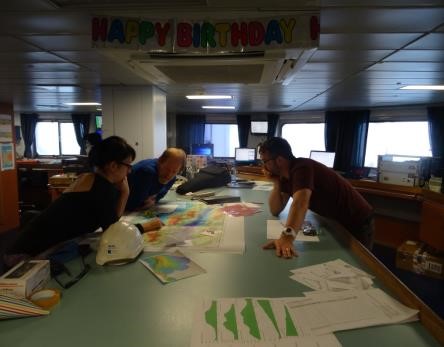
ROV dives for dummies!
With the collaboration of the ROV Holland 1, the scientific expedition TOSCA, the Research Vessel Celtic Explorer, from the Irish Marine Institute (http://scientistsatsea.blogspot.com/) , and some notes from Dr. Katleen Robert (Memorial University of Newfoundland, Canada).
Everything you always wanted to know – from A to Z about how to succeed a ROV (remotely operated vehicle) dive.
Continue reading →







